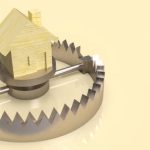Mortgage Loan Fraud Audits: A Comprehensive Guide to Protecting Your Financial Future
Mortgage loan fraud is a serious issue that affects both individuals and the real estate industry as a whole. With increasing instances of fraudulent activity in the mortgage industry, it is crucial for both lenders and borrowers to be vigilant. Mortgage loan fraud audits have become an essential tool in identifying and mitigating these risks. This blog explores the importance of mortgage loan fraud audits, the role of securitization loan audits in uncovering fraud, and how fraud stoppers can help safeguard your financial interests.
What Is Mortgage Loan Fraud?
Mortgage loan fraud occurs when false information is intentionally provided in a mortgage application to gain approval for a loan. This can involve inflating income, misrepresenting employment status, falsifying documents, or hiding debts to make a borrower appear more financially secure than they actually are. It also includes fraudulent actions taken by mortgage brokers or lenders who may mislead or deceive borrowers into signing agreements with unfair terms.
In recent years, mortgage fraud has been on the rise, fueled by increasingly complex financial products and loopholes in the regulatory system. The consequences of mortgage fraud can be devastating, leading to financial losses, foreclosure, and legal complications. As such, conducting thorough mortgage loan fraud audits is crucial for identifying any discrepancies and protecting both lenders and borrowers.
Mortgage loan fraud can have significant long-term repercussions for both the lender and the borrower. When fraud is uncovered, it can result in legal disputes, financial penalties, and reputational damage for institutions involved. For borrowers, fraudulent loans can lead to severe debt burdens and the possibility of losing their homes. This is why mortgage loan fraud audits are a critical aspect of the mortgage industry and should not be overlooked.
Why Mortgage Loan Fraud Audits Are Essential
Mortgage loan fraud audits serve as a vital tool for identifying potential fraud and mitigating its impact. These audits are designed to thoroughly examine loan documents and applications to uncover any inconsistencies or signs of fraud. By reviewing a variety of factors—including income verification, employment history, debt-to-income ratios, and credit scores—an audit can reveal red flags that may suggest fraudulent activity.
The primary goal of a mortgage loan fraud audit is to protect the financial interests of all parties involved. For lenders, fraud audits help minimize the risk of losing money on defaulted loans that were fraudulently obtained. For borrowers, audits ensure that they are not subject to deceptive lending practices or unfair loan terms.
Mortgage loan fraud audits can also help financial institutions comply with regulatory requirements. The mortgage industry is subject to strict oversight by government agencies, including the Consumer Financial Protection Bureau (CFPB) and the Federal Trade Commission (FTC). Conducting regular fraud audits can help lenders stay compliant with these regulations and avoid legal penalties.
Fraud audits are not just reactive tools used to address existing issues—they can also serve as preventive measures. By regularly auditing loans, lenders can identify potential risks before they escalate into full-fledged problems. This proactive approach can help lenders identify suspicious patterns and address them early, potentially saving significant amounts of money and resources.
The Role of Securitization Loan Audits in Fraud Prevention
While mortgage loan fraud audits are important for detecting fraudulent loans, securitization loan audits take this a step further by examining the underlying mortgage-backed securities (MBS) and the processes involved in their creation. Securitization is the practice of bundling individual mortgages into securities that can be sold to investors. This process is a common method of financing for lenders, but it can also provide opportunities for fraud if not properly audited.
Securitization loan audits are designed to review the accuracy and transparency of the securitization process, ensuring that all aspects of the loan origination, underwriting, and packaging are legitimate. These audits involve examining the mortgage-backed securities to confirm that the underlying loans are properly documented and in compliance with regulatory standards. This can include reviewing loan documents, verifying borrower information, and ensuring that the securities have been properly disclosed to investors.
The integration of securitization loan audits in fraud prevention is especially critical given the complexity of mortgage-backed securities and the potential for fraud at multiple levels of the transaction. Without proper auditing, lenders and investors may be exposed to significant risks, such as purchasing securities backed by fraudulent loans or being held accountable for loans that were misrepresented. By conducting thorough securitization audits, institutions can ensure that they are not unknowingly involved in fraudulent activities.
In addition to protecting lenders and investors, securitization audits also serve to protect the integrity of the mortgage market as a whole. By promoting transparency and accountability in the securitization process, these audits help build trust among investors, borrowers, and regulators. This is essential for maintaining a healthy and stable financial system.
How Fraud Stoppers Help Protect Against Mortgage Loan Fraud
Fraud stoppers are specialized tools and services designed to prevent and detect mortgage loan fraud before it causes significant harm. These tools are used by lenders, mortgage brokers, and financial institutions to identify fraudulent activity at an early stage and take corrective action. Fraud stoppers can include software, systems, and services that scan loan applications, verify borrower information, and flag suspicious activity.
One of the most effective fraud stoppers in use today is automated fraud detection software, which uses algorithms and machine learning to identify patterns of fraudulent behavior. These systems analyze vast amounts of data from loan applications, credit reports, and other sources to detect inconsistencies that might suggest fraud. For example, if a borrower provides inconsistent income information or inflates their credit score, fraud detection software can flag these discrepancies for further investigation.
Another type of fraud stopper involves third-party verification services, which verify key pieces of information, such as income, employment, and identity. These services can help ensure that the borrower is who they say they are and that the information they have provided is accurate. In addition, fraud stoppers can help lenders cross-check information across multiple sources to identify any conflicting details that might indicate fraudulent activity.
Fraud stoppers are particularly useful for preventing mortgage fraud at the application stage, but they can also be used throughout the loan lifecycle. By continuously monitoring loans and identifying red flags, fraud stoppers can help institutions detect and address fraudulent behavior before it escalates into a larger issue.
In addition to using fraud stoppers, it is essential for lenders and borrowers to remain vigilant and educated about the risks of mortgage fraud. Regularly conducting mortgage loan fraud audits and securitization loan audits is the best way to ensure that any potential fraud is detected early, giving all parties involved the opportunity to take corrective action.
Real-World Success Stories: How Audits and Fraud Stoppers Have Saved Institutions
Numerous financial institutions have successfully utilized mortgage loan fraud audits and fraud stoppers to prevent significant financial losses and safeguard their reputations. By adopting these tools, these institutions have been able to uncover fraudulent activities early on and take immediate corrective measures.
One example comes from a major regional bank that implemented a comprehensive fraud detection system in response to an uptick in fraudulent mortgage applications. The bank integrated automated fraud detection software with its loan processing system, allowing it to quickly identify inconsistencies in borrower applications. As a result, the bank was able to flag a series of suspicious loan applications before they were approved, preventing millions of dollars in potential losses.
Another success story involves a large investment firm that utilized securitization loan audits to uncover fraudulent loans in its mortgage-backed securities portfolio. The firm had been purchasing MBS without thoroughly vetting the underlying loans, leading to exposure to fraudulent mortgages. After conducting a full audit of its securitization processes, the firm discovered several misrepresented loans and was able to take corrective action before the fraud could spread further.
These examples demonstrate the value of mortgage loan fraud audits and fraud stoppers in protecting financial institutions from potentially catastrophic losses. By adopting these tools and methods, lenders, investors, and borrowers can ensure that their financial interests remain secure.
Testimonials and Expert Opinions
“I’ve seen firsthand how mortgage loan fraud audits can help lenders avoid significant financial risks. By carefully reviewing loan applications and conducting thorough audits, we’ve been able to spot discrepancies early on and prevent fraudulent loans from slipping through the cracks.” – John Harris, Senior Mortgage Auditor
“Integrating fraud stoppers into our loan processing system has saved us millions of dollars in potential losses. We now have a more streamlined process for identifying suspicious activity, which has significantly reduced the number of fraudulent loans we approve.” – Sarah Klein, Mortgage Broker
“As an investor in mortgage-backed securities, I can’t stress enough how important it is to conduct thorough securitization loan audits. Without them, we risk investing in loans that are misrepresented or outright fraudulent, which can jeopardize our entire portfolio.” – Mark Davis, Financial Consultant
Conclusion: Secure Your Financial Future Today
Mortgage loan fraud is an ever-present threat in today’s financial landscape, but with the right tools and audits in place, you can protect yourself from these risks. Mortgage loan fraud audits, combined with securitization loan audits and fraud stoppers, offer a comprehensive solution for identifying and preventing fraud at every stage of the loan process.
To safeguard your financial future and ensure that your investments remain secure, it is essential to partner with a trusted mortgage audit service. At Mortgage Audits Online, we offer professional audits, fraud prevention tools, and expert guidance to help you navigate the complexities of mortgage fraud and securitization.
Contact us today at (877)-399-2995 or visit Mortgage Audits Online to learn more. Secure your financial future with confidence!




